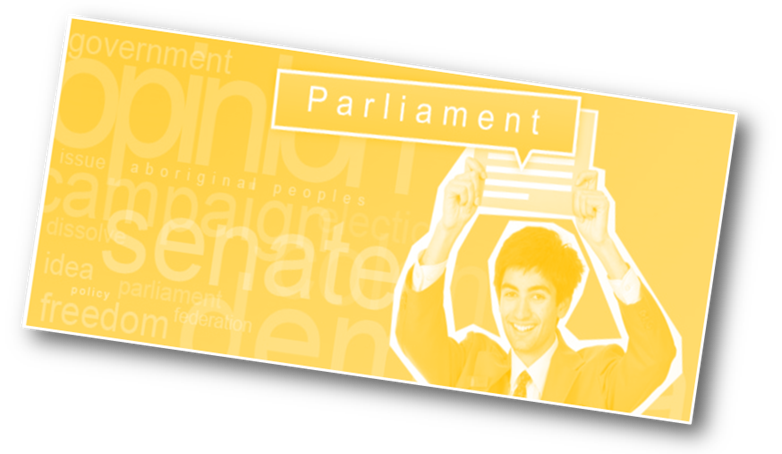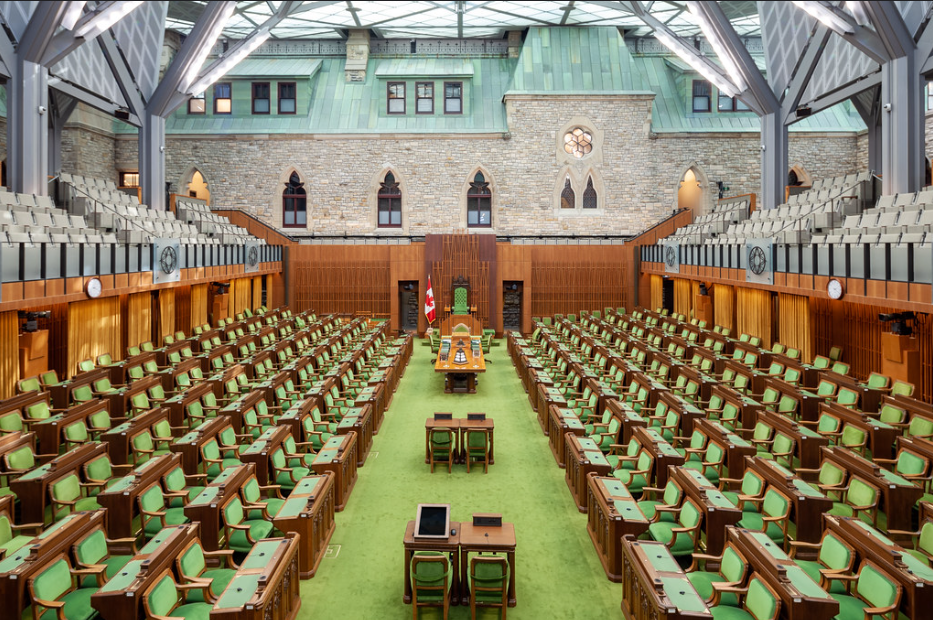
Canada: The Value of Democracy - Canada is a ‘democracy’, which means Canadian citizens like you have the right to be involved directly or indirectly in the decision-making process. As a representative democracy, each citizen has the right to elect representatives at each level of government (federal, provincial or territorial, and municipal). These representatives make decisions and laws that affect all parts of life and we can hold them accountable at the next election.
A Living Parliament is always evolving to meet the changing needs of Canadians. When the Canadian Parliament was first formed in 1867, there were 72 Senators and 181 Members in the House of Commons. The concerns of parliamentarians and the Canadian people included the expansion of Canada and the construction of an intercontinental railway. Today, because Canada is much bigger, there are 105 Senators and 338 Members in the House of Commons. The issues and concerns of today are quite different than they used to be!
How Does Parliament Change to Keep Up with the Needs of Canadians? Canadian’s values are influenced by events and issues at local, national, and international levels. Parliament is influenced by the views of Canadians, directly and through a free and independent media. As a result every Parliament creates new laws and alters existing ones. The way the courts interpret these laws also changes over time. This makes our system very flexible and able to adapt to changes as they occur.

Our system of government is part of the reason why Canada is known around the world as a great place to live. Canada is a ‘constitutional monarchy’ with the King of Great Britain as our traditional head of state. With the advice of the Prime Minister, the King appoints an eminent Canadian as Governor General, his official representative in Canada.
Our parliamentary system, modeled after the British parliament, is open and democratic. It offers the opportunity for people to give their input and it is designed to make sure proposals for laws are carefully considered.
Canada's Parliament consists of three parts: the King, the Senate, and the House of Commons. They work together to make the laws for our country. The executive branch consists of the King, the Prime Minister and Cabinet, and the departments of government. They implement the laws. The legislative branch makes the laws, and the judicial branch — which is not part of Parliament — interprets them.
To become a Member of Parliament, you must first run in a federal election, which is held every four years. In each of the country's 338 constituencies, or ridings, the candidate who gets the most votes is elected to the House of Commons, even if he or she gets less than half of the total votes.
Seats in the House of Commons are distributed roughly in proportion to the population of each province and territory. In general, the more people in a province or territory, the more Members it has in the House of Commons. Every province or territory must have at least as many Members in the Commons as it has in the Senate.
Many laws in Canada first begin as ‘bills’ in the House of Commons, presented by cabinet ministers or by individual Members of Parliament. In the Commons Chamber, Members devote most of their time to debating and voting on bills. The Chamber is also a place where Members represent constituents' views and concerns such as:
· Creating Better Jobs for Canadians
· Supporting Middle-Class Families
· Helping Canadian Youth Succeed
· Achieving a Better Quality of Life for Seniors
· Supporting Small Businesses in Canada
· Fighting Climate Change and Building our Economy
· Affordable Housing…and Housing Affordability
· Creating fair and inclusive economy and society to achieve pprosperity for all Canadians
· Delivering Results for our constituencies
· Keeping our Communities Safe from Gangs and Guns
The House of Commons provides a link between Canadians and their Parliament. The people we elect to represent us — farmers, teachers, lawyers, businesspeople, and others — bring their ideas and experience to bear on their work. Members make a difference by creating laws and helping their constituents with problems. They work within the structure of Parliament and their parties to make decisions in the interest of Canada. We may or may not like what they do, but the system gives us the chance to hold them accountable at every federal election.

Who is in the House -
The Speaker - After each election, the Members of the House of Commons elect a Speaker from among MPs by secret ballot. The Speaker presides over the House of Commons and ensures that everyone respects its rules and traditions. The Speaker must be impartial and apply the rules to all Members equally.
The Prime Minister - Is the leader of the party in power and is the Head of Government. A Prime Minister's duties include presiding over Cabinet meetings, meeting official foreign delegations to Ottawa and answering questions in the House of Commons. Since the Prime Minister is usually a Member of Parliament, he or she also spends time helping constituents.
The Cabinet - The Prime Minister chooses the Cabinet Ministers, and the Governor General formally appoints them. The Prime Minister and Cabinet meet regularly to discuss and decide on various topics such as government spending, ideas for bills, and new policies, programs, and services. Cabinet Ministers oversee a government department, and they report on their department's activities to Parliament.
The Members of Parliament - For 152 years, Members of Parliament (MP) have upheld the principles and practices of Canadian democracy by representing the views of the citizens who elect them. Members debate and vote on legislation in the Chamber, attend committee and caucus meetings, and perform a wide range of duties in their constituencies across the country. To meet their constituents' needs, MPs have an office in Ottawa and one or more in their riding. Their offices are often the first stop for people who need help. Members act as "ombudsmen," helping constituents with questions about visas, pension benefits, income tax — anything that is the business of the federal government. Members and their staff are good resources because they understand how federal departments are organized and where to find answers.
Electing Members of Parliament gives Canadians a voice in the affairs of our country and in holding the government to account for its actions. When we vote, when we tell our Member of Parliament what we are thinking, or when we ask questions about the system, we help the system to be stronger and serve us better.
Source: Parliament of Canada website please visit https://lop.parl.ca/About/Parliament/GuideToHoC